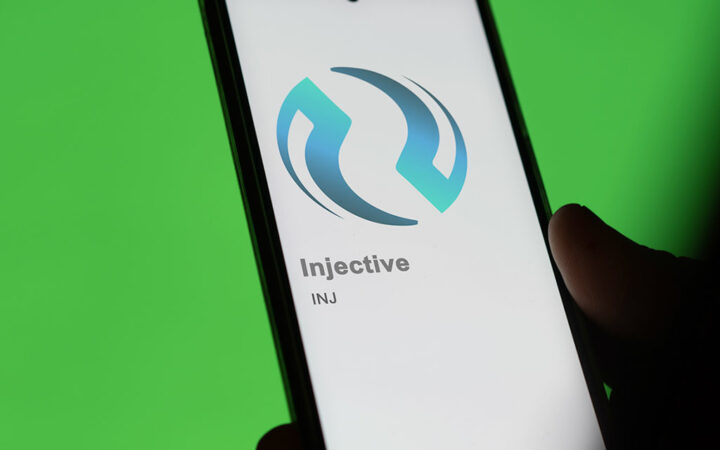
Demystifying Decentralized Identity (DID) on Cosmos: A Comprehensive Overview
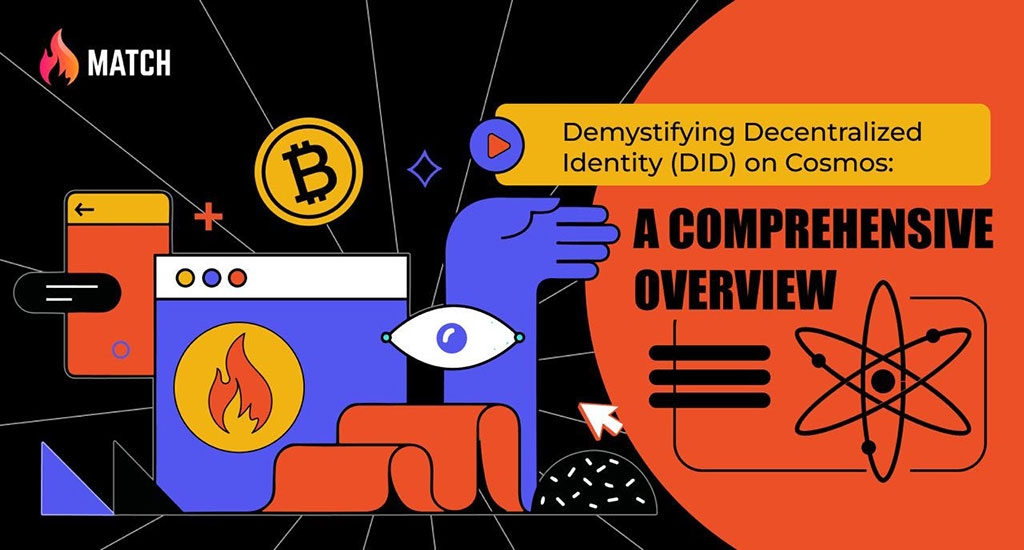
In today’s digital age, the protection of our individual identities has become increasingly crucial. As technology advances and we rely more on digital platforms, it has become alarmingly easy for others to gain access to, control, and manipulate the information that comprises our identities. This pervasive issue has raised global concerns and has persisted for years without significant resolution.
Despite the extensive media coverage and documentaries highlighting identity manipulation, the impact of these revelations has been disappointingly minimal. However, this state of affairs is not set to continue for long.
Undoubtedly, Blockchain technology is changing the narrative across different walks of life through innovations and technological advancement, and one of the most remarkable innovations currently making waves is Decentralized Identifiers(DID). From social identity down to official credentials, DID is changing the status quo and completely rewriting the narrative through self-sovereign identity, thereby putting people in control of their data and identity.
DIDs are also a central part of the cosmos ecosystem as they offer privacy, security, and interoperable identity that you can carry across different networks in the ecosystem.
Throughout this article, we will help you understand what DIDs are and their benefit on the Cosmos ecosystem.
What Are DIDs?
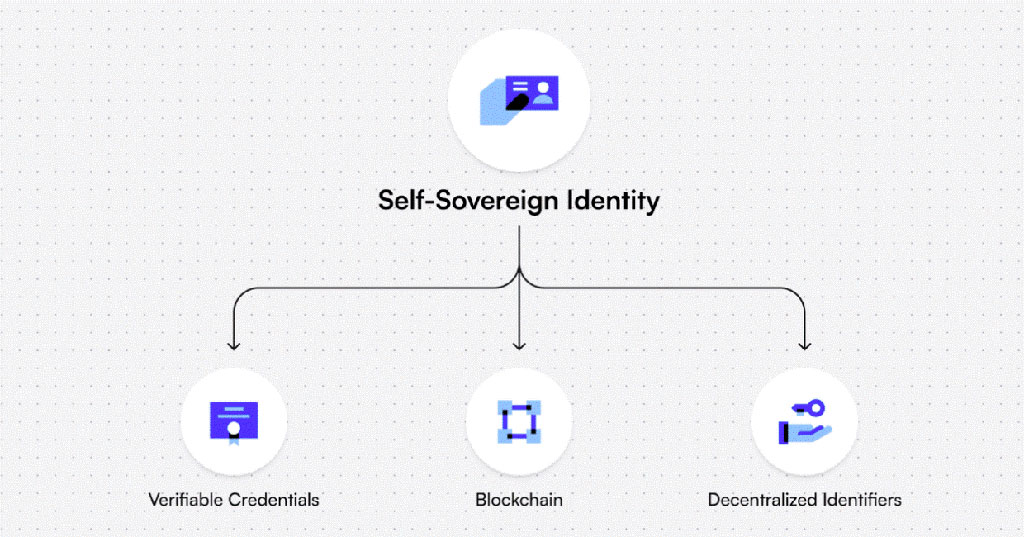
A Decentralized Identifier (DID) is a unique identifier used to represent individuals or organizations, and it is not controlled by a single entity. DID is currently at the forefront of blockchain innovation, empowering individuals to take control of their data and significantly reducing the risk of data theft or manipulation.
DID’s foundation rests on four key principles: decentralization, immutability, interoperability, and privacy. These principles imbue DIDs with immutability, interoperability, security, and resistance to censorship. Consequently, DIDs offer a promising solution for establishing secure and user-controlled digital identities in an increasingly interconnected and data-driven world.
It is worth noting that DIDs are stored on a blockchain, ensuring they are tamper-proof and immutable. Once a DID is created, it cannot be altered or deleted.
DIDs have so many applications, but they mostly fall under three major categories. They include:
- Empower individuals to have control over their own identity data.
- Develop systems that issue and verify digital certificates.
- Integrate DIDs to authenticate users within decentralized applications.
Understanding DIDs
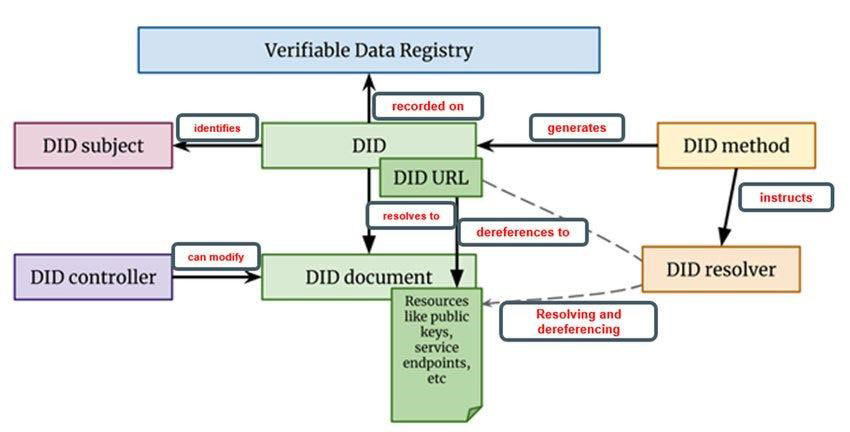
DIDs are based on a standard called W3C DID specification. This specification provides a standardized framework for the representation and makes it possible for different applications and services to interoperate and share DIDs.
Essentially, a DID comprises two key elements: the DID identifier and the DID document.
The DID identifier is a unique URI (Uniform Resource Identifier) that serves as the unique identifier for a particular DID. Think of it as a special address that separates one DID from another.
While the DID document is a JSON (JavaScript Object Notation) object that contains important information about the specific DID. It serves as a container for the different details associated with the DID, such as the identity owner’s information, the public key linked to the DID, and the service endpoints that can be used to interact with the identity or associated services.
To help you understand, let’s create an example using the name “Abiodun Victoria” for a school certificate DID.
Please note that this example is fictional and created for illustrative purposes. In practice, generating real DIDs and associated documents would involve appropriate cryptographic protocols and security measures.
- DID Identifier:
We’ll create a unique DID identifier using the name “Abiodun Victoria.” Let’s say the DID identifier is: `did:example:abiodunvictoria123`.
- DID Document:
Now, let’s create a sample DID document in JSON format for Abiodun Victria’s school certificate:
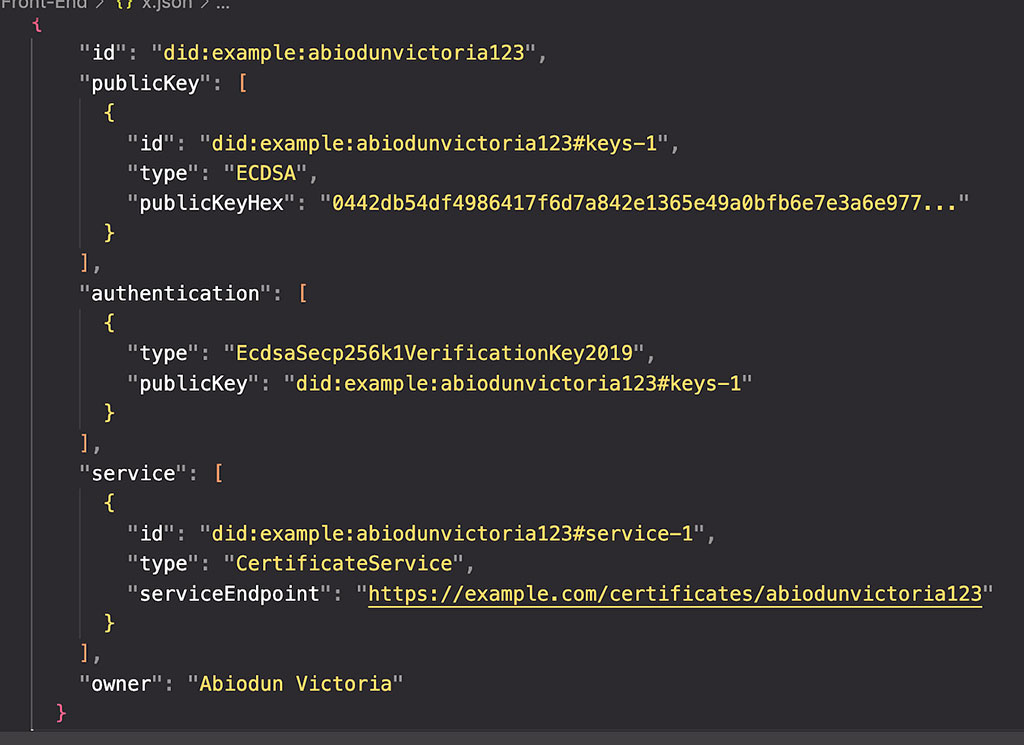
In this example, the DID document includes the following elements:
- `”id”`: Specifies the DID identifier, associating it with the document.
- `”publicKey”`: Represents the public key associated with Abiodun Victoria’s school certificate.
- `”authentication”`: Defines the authentication method using the specified public key.
- `”service”`: Describes a service related to the DID, such as a certificate service in this case.
- `”owner”`: Indicates the owner or identity associated with the DID, which is Abiodun Victoria.
Abiodun Victoria can now share her DID (`did:example:abiodunvictoria123`) and the corresponding DID document with relevant parties, such as educational institutions or potential employers. The DID document provides essential information about her school certificate, including her public key, authentication method, the certificate service endpoint, and ownership.
Others can use this information to verify the authenticity of Abiodun Victoria’s school certificate, interact with the certificate service, or establish secure communications using her public key.
Exploring Decentralized Identity (DID) on Cosmos
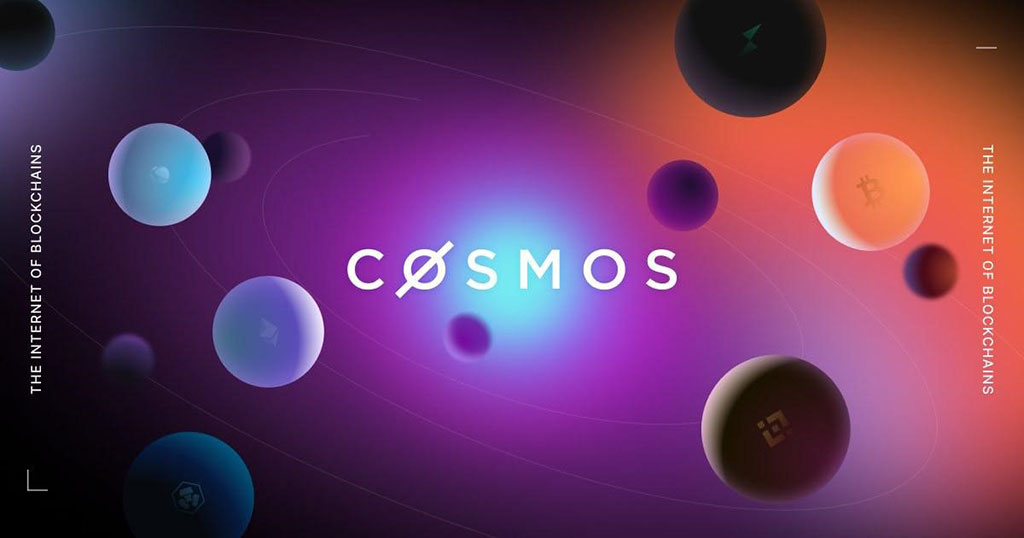
DIDs are a key part of the Cosmos ecosystem, and since they are interoperable, it makes it possible for users to have a single, unified identity that can be used across different applications within the ecosystem. This means DID powers seamless identity management and interoperability across multiple blockchains within the Cosmos network.
First, DIDs offer a powerful solution by creating a unified identity that can seamlessly be used across multiple blockchain networks. This breakthrough innovation eliminates the hassle of creating new accounts for every application or service, providing users with easy access to different platforms.
Also, DIDs have completely revolutionized the way user data is shared across different blockchain networks. By maintaining a single, comprehensive identity record, individuals can effortlessly manage and update their personal information. This opens up lots of possibilities, from streamlined identity verification to simplified interactions with government services and even improving job application processes.
Finally, DIDs play a pivotal role in ensuring secure and private cross-chain communication. With DIDs, users can securely transmit messages, data, and tokens across various blockchain networks, safeguarding their privacy while enabling seamless interoperability.
The Cosmos network stands out as an exceptional example of a blockchain ecosystem that fully incorporates DIDs. Designed with interoperability as a core principle, the Cosmos network facilitates seamless communication between different blockchains within its ecosystem. This unique characteristic enables DIDs to be used across multiple blockchain networks within the Cosmos network.
There are several key technical components and protocols that enable DID on Cosmos. They include:
- The Cosmos-SDK: The Cosmos-SDK is a powerful framework designed for building blockchain applications. The framework has a dedicated module specifically designed to manage DIDs. This module facilitates the creation and management of DIDs, which makes it easy for developers to create applications that use DIDs.
- The W3C DID specification: The W3C specification provides a standard for representing and managing DIDs. This specification defines the methodology for creating DIDs and storing them. It is already widely used in the Cosmos ecosystem.
- The Interchain Identity (ICID) project: The ICID project is still in its early stage but is developing a standardized framework for DIDs within the Cosmos ecosystem. This standardization effort ensures seamless interoperability as it is designed to be interoperable with other DID standards, such as the W3C DID specification. This means that DIDs created using ICID can be used across different blockchain networks.
- The W3C Verifiable Credentials (VC) specification: The W3C VC specification is another important standard that plays a significant role in enabling DIDs on Cosmos. This specification outlines a standardized approach for issuing and verifying verifiable credentials. Verifiable credentials are digital certificates that allow individuals to prove their identity or qualifications in a secure and tamper-proof manner. By incorporating the W3C VC specification, Cosmos promotes verifying credentials using DIDs within its decentralized identity infrastructure.
Real-World Use Cases of DID
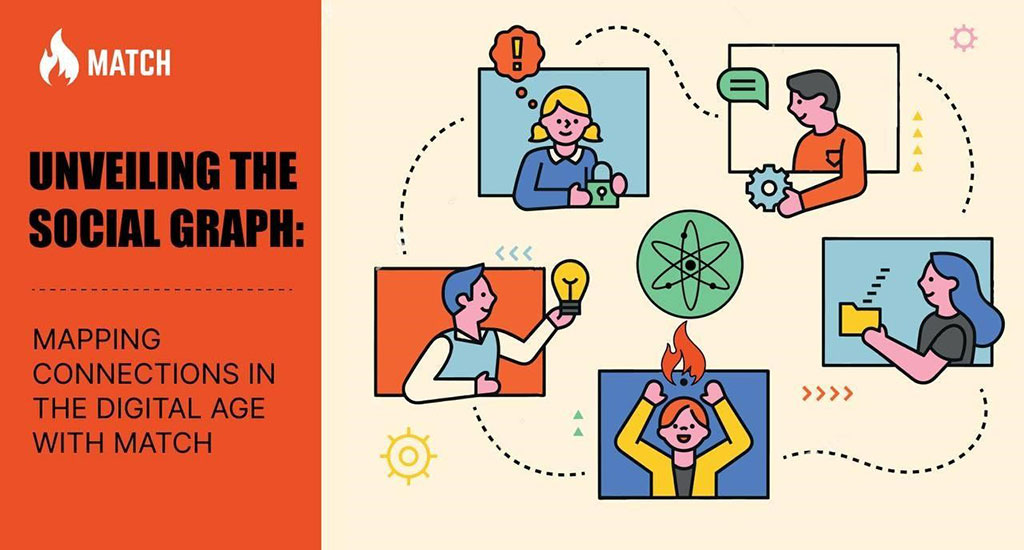
If you made it down here, you could already think of a million ways DID can be incorporated into different walks of life. Here are some real-world use cases of DID on the Cosmos ecosystem:
- Kava: Kava is a decentralized finance (DeFi) platform that allows users to borrow, lend, and stake digital assets. Kava uses DIDs to provide users with a secure and decentralized way to manage their identities and financial data.
- Patientory: Patientory is a healthcare platform that uses DIDs to allow patients to manage their own healthcare data. This makes it possible for patients to access their medical records from anywhere and to share their data with healthcare providers in a secure way.
- Juno: Juno is a decentralized application (DApp) platform that is built on the Cosmos SDK. Juno uses DIDs to allow users to create and manage their own DIDs. This makes it possible for users to use their Juno DIDs to access DApps on the Juno network.
- OriginTrail: OriginTrail is a supply chain traceability platform that uses DIDs to track the movement of goods and materials across the supply chain. OriginTrail’s goal is to make it possible for businesses to track the provenance of their products in a secure and transparent way.
- Match Chain: Match Chain is an innovative web3 social graph built on the Cosmos network. It employs DID as a tool to empower users by giving them control over their data and offers the infrastructure for developers to easily build innovative and user-friendly decentralized applications (DApps).
Conclusion
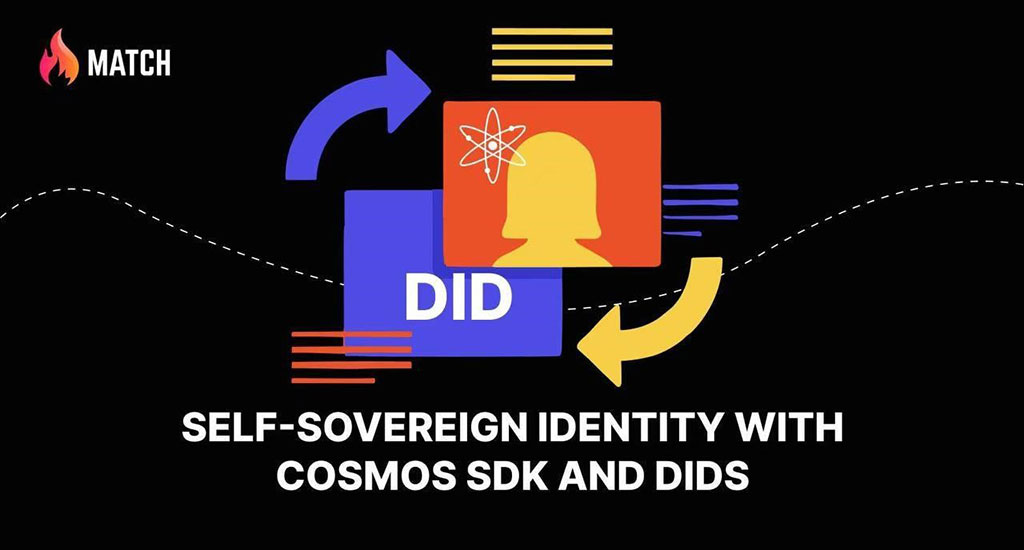
Decentralized Identifiers (DIDs) present numerous benefits across various walks of life, and we are already witnessing significant adoption of this innovative technology within the Cosmos network. As we continue to explore and understand the potential of DIDs, it is clear that we are only scratching the surface of their capabilities. The adoption of DIDs on the Cosmos network is a testament to the significance and promise of this technology. With its interoperable nature and strong technical foundation, the Cosmos ecosystem provides an ideal environment for the widespread use and integration of DIDs.
For more information about Cosmos, visit.
To join Match Chain and gain more information on the Match chain and what we do, visit: DevDoc | Twitter | Discord | Telegram | Medium | Mirror | Reddit
Disclaimer: This publication is sponsored. Coinspeaker does not endorse or assume responsibility for the content, accuracy, quality, advertising, products, or other materials on this web page. Readers are advised to conduct their own research before engaging with any company mentioned. Please note that the featured information is not intended as, and shall not be understood or construed as legal, tax, investment, financial, or other advice. Nothing contained on this web page constitutes a solicitation, recommendation, endorsement, or offer by Coinspeaker or any third party service provider to buy or sell any cryptoassets or other financial instruments. Crypto assets are a high-risk investment. You should consider whether you understand the possibility of losing money due to leverage. None of the material should be considered as investment advice. Coinspeaker shall not be held liable, directly or indirectly, for any damages or losses arising from the use or reliance on any content, goods, or services featured on this web page.


